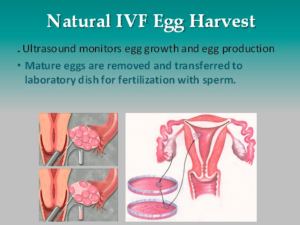Three things you don’t know about Fertility

I was just re-listening to the awesome interviews Cathy did recently with Mary Wong, author of Pathways to Pregnancy and Lisa Manterfield, creator of LifeWithoutBaby. I also recently had a wonderful conversation with one of my dear friends who has been through infertility and IVF treatment.
Sometimes when I’m reading a book or listening to a talk or podcast, things just kind of fall into buckets or slots or bullet lists in my mind. What can I say, it’s how my brain works. As I stirred these multiple conversations around in the bubbling stewpot inside my head, three things clearly distilled out of these long and rich conversations. While they were all wide-ranging, I was struck in particular by specific themes that all related to the early stages of the process, i.e. the time before and just after realizing you might be, or are diagnosed as, infertile.
For those who are just starting to try having children, or those who just realized it may be a challenge, I’d like to share those common themes I heard, if only in hopes that for some folks who are still early in the process, it will help you understand the actual nature of the playing field you are stepping onto.
First, infertility can strike anyone, anywhere: This was so poignantly brought home in Mary’s interview. If you listen to her story, you’ll hear how she was inspired as a young child by a loved one’s miraculous recovery from an illness to devote her whole professional life to health and wellness, and not just wellness, but fertility!
Mary is an expert on the topic. She spends her days talking and thinking and advising people on the best ways to help achieve conception. She knows what she’s talking about, and she probably leads a more health-aware, health-conscious lifestyle than many of us, certainly more than I did before Cathy and I tried to have a family.
Guess what? It made no difference. She was one of the unlucky ones. (Mental insert here of Lawerence Fishburne’s rich baritone as Morpheus from The Matrix; “Fate, it seems, is not without a sense of irony…”)
And what really struck me was this – unless and until it happens to you, no one tells you about this. They don’t explain the odds, or normalize the challenges. It’s not part of our education, it’s not in our health classes, it’s not discussed in the media. (Heck, the only thing the media ever says about this the joyous story of some 46 year old celebrity with her “miracle” baby bump smiling from a magazine cover in the checkout aisle. Grrrr…..)
Infertility sucks. It’s a mean little bugger, and it’s an equal-opportunity disease. I think if more people knew that, talked about it, educated about it and raised awareness of it in mainstream health discussions, the way we talk about exercise or smoking, I think there would be much more proactive thinking about family planning and far less stigma and shame for those having difficulty.
Second, paying attention to your own health is really important, before and during your efforts to have a family. Part of Mary’s story was discussing her diagnosis of infertility, both the root causes – no spoilers, but definitely not easy to open up and talk about – and her reactions to the cause and to the diagnosis, which are related but distinct discussions. The same was true with my friend. She had other medical issues that were contributing to the difficulty in conceiving.
Obviously part of this is the basics we all know, but sometimes don’t give enough attention to. Eat well, sleep enough, exercise. I don’t know the scientific literature on factors like weight and sleep on fertility (hey, I think I just found my next post!) but I bet a nickel that there’s some meaningful correlation between some basic measures of wellness and conception.
It’s more than that though. When you listen to Mary’s story, there’s another key element. She was always healthy, and so, like too many of us, never went to the doctor because, if you feel fine, you are fine, right?
Wrong.
It’s a cliché, but not without reason. Just because you feel fine doesn’t mean you should not have regular evaluations by a physician. When it comes to fertility, many of the things that have a huge potential impact on your ability to conceive are things you would never know about, or think about, unless you specifically ask. So ask, and the earlier the better. Many of these factors are entirely unrelated to age, but some certainly are. Which brings me to my third point…
Time is of the essence. Conceptually, I guess we all know, or intuit, that fertility declines as you get older. But again, we’re not taught the details. It’s not part of our education. We’re explicitly taught that smoking is bad for you. We’re explicitly taught that being overweight increases your risk for certain diseases. We’re not explicitly taught just how non-linear that age-related decline is. In the absence of clear information, our natural tendency is to assume things naturally decline more or less linearly. In this case, that assumption is just plain wrong.
As Lisa Manterfield so perfectly put it in her interview with Cathy, when you look at fertility (particularly for women) plotted with child-rearing age, e.g. 18-45, it’s not a slope, it’s a cliff. A big, nasty, nearly vertical cliff. And until and unless you see that, see it with your eyes, you don’t really understand how important certain decisions can be. I know I didn’t, and if I’d seen that cliff, seen it and understood it as a normal part of discussion and education and healthcare in our society, I might have made different decisions or plans with Cathy in those critical years.
We can’t know when we’ll meet the right partner, or control how old we are when we fall in love, or predict what medical issues we may have. But looking back on it now, I can’t believe that an issue this emotional, this important and this widespread is such a societal blank spot. Too often, I think this only comes up when, and for the people for whom, it’s already become an issue.
So if some of you out there are just starting on your journey, or Googled your way here because you’re looking for information, maybe hearing these things, early on when they’re most important, will be of some help. Infertility can happen to anyone; you can’t just assume your body is ready and able, so get checked out; and time matters. I’m telling you, these three things are important to hear, and as early as possible. I’m telling you, because I wish someone had told me.




Another one I wish we had been told….a percentage of men experience infertility from smoking marijuana, which can be reversed upon abstinence from smoking. Had we known this, we wouldn’t have spent two years WASTING OUR TIME.